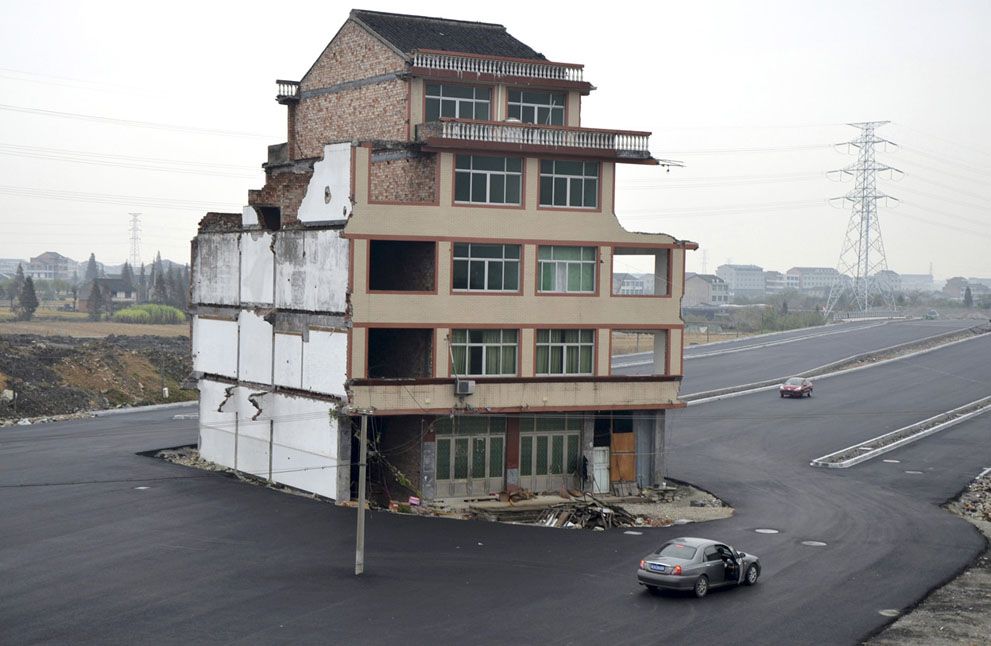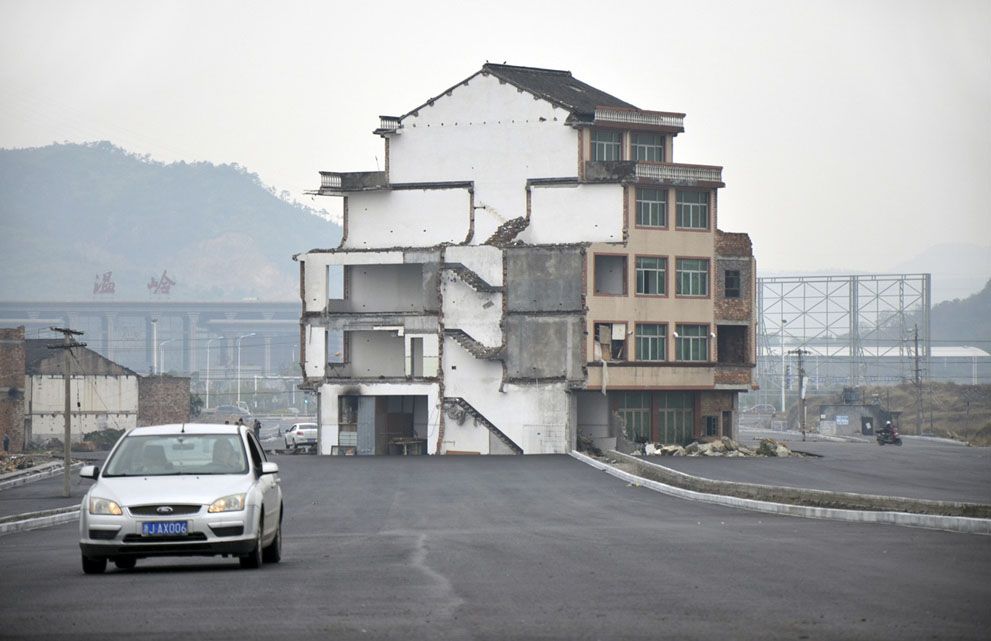China's 'Nail Houses': A Thorn in China's Development [PHOTOS]
In China, houses that belong to homeowners refusing to make room for developers are dubbed "nail houses" because of the way they stick out and are difficult to remove. These unsightly nail houses bring attention to the ongoing tug-of-war between Chinese homeowners who are being forced out in the name of urbanization by local governments and developers.
A report by the National Post said that one of the most stubborn nail houses is one in a village in Zhejiang province where an elderly couple remained in their five-story home as the Chinese government paved a four-lane highway around the house.
Luo Baogen, 67, and his wife remained in their nail house after the compensation offer given by the government of 260,000 yuan (US$41,573) and other building options was not enough compared to what they spent building and renovating the property.
Developers of the highway had cleared out Luo's neighbors and demolished all surrounding structures, leaving just enough to keep the nail house standing. Their home is still inhabitable, though new problems related to living in the middle of a highway have arisen. Safety from burglars and other passersby are now a concern, as they are no longer protected by outside walls. Though the road leading to a nearby train station has been paved, it is yet to be opened. Luo and his wife are concerned about the traffic and noise that will inevitably occur once it does.
In Beijing, most of the historic and traditional Hutong courtyard homes no longer exist. The few that still stand now likely lie between alleyways that have been spray painted with the Chinese character "chai," meaning "demolish."
The very existence of traditional Chinese homes seem to be coming to an end, especially in the increasingly metropolitan areas. Though China's billion-strong population has slowed in growth, migration to urban areas keeps increasing. Cities like Tianjin, which was once considered a second-tier city, are seeing lots of infrastructure development to keep up with the influx of wealthy businesses and people, mostly at the expense of its original residents. Because Chinese laws make it illegal for demolition to occur without an agreement between homeowners and developers, a sprinkling of nail houses remain, because homeowners feel they are not given enough compensation.
But there are some laws that are able to protect homeowners like Luo and his wife.
According to CNC World, China's State Council issued a regulation where expropriation and compensation must be made on state-owned land, replacing a previous law that allowed local authorities to enforce demolition at will. If an agreement is not made between the parties, the case moves onto the court system and must be reviewed and approved before demolition can occur.
However, Luo's house is still an anomaly among nail houses, which often become uninhabitable when surroundings are demolished. While Luo still has water and electricity, most homeowners who live in nail houses get cut off from these basic utilities, eventually forcing them out of their homes.
As nail houses continue to be thorns in China's plans for development, netizens are happy to see more nail houses in the middle of land developments, saying it shows the government's respect for private property owners and may serve as a precedent for future cases.


© Copyright IBTimes 2025. All rights reserved.






















